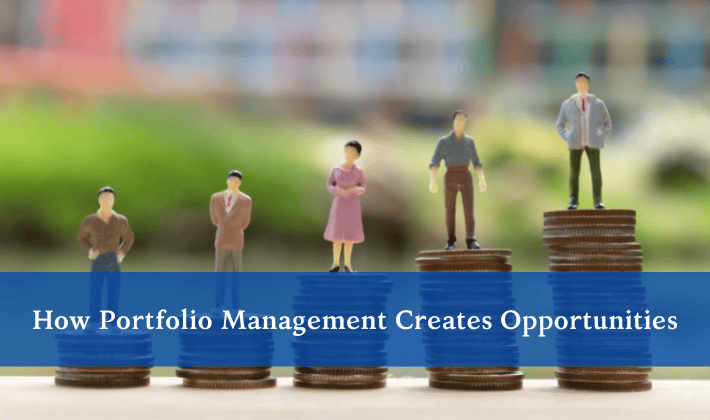Private Wealth Management Firms

No one is more familiar with the ups and downs associated with private wealth management firms than high-net-worth individuals. These financial shifts can impact not only wealth but also business careers and personal life decisions. As a result, today’s high-net-worth individuals often seek financial planning services that are specifically tailored to their unique needs.
In practice, much of financial planning revolves around detailed investment management, strategic financial advice, and, when necessary, coordination with legal and tax professionals.
Even as your financial structure evolves over time, there has never been a better opportunity to consider working with a private wealth management firm that can align its services with your long-term financial goals.

Top 8 Wealth Management Firms
| # | Company | Total Assets |
| 1. | UBS | 1.12 Trillion USD |
| 2. | Bank of America | 3.169 Trillion USD |
| 3. | Wells Fargo | 1.75 Trillion USD |
| 4. | Credit Suisse | 755.8 Billion CHF |
| 5. | JPMorgan Chase | 2.87 Trillion USD |
| 6. | Morgan Stanley | 1.118 Billion USD |
| 7. | HSBC | 2.958 Trillion USD |
| 8. | Deutsche Bank | 1.498 Trillion EUR |
1. UBS
UBS operates as a global wealth manager across more than 40 countries with over 23,000 employees. Its primary business divisions include Global Wealth Management, Personal & Corporate Banking, Asset Management, and Investment Banking. UBS offers strategic wealth planning services focused on liquidity needs, long-term financial strategies, and legacy goals.
2. Bank of America
Bank of America’s Global Wealth and Investment Management division includes Merrill Lynch Global Wealth Management and Bank of America Private Bank. The firm provides lifestyle planning, tax consulting, investment management, trusts and estates services, philanthropic planning, and private banking.
3. Wells Fargo
Headquartered in San Francisco, Wells Fargo operates in 35 countries and serves over 70 million customers worldwide. Through Wells Fargo Private Bank and Wells Fargo Advisors, the firm provides a range of wealth management solutions, including personalized planning aligned with clients’ long-term financial and lifestyle goals.
4. Credit Suisse
Headquartered in Zurich, Switzerland, and founded in 1856, Credit Suisse maintains a significant presence in the United States with over 7,000 employees operating from hubs in New York and Raleigh.
The wealth management division of Credit Suisse provides comprehensive advisory services tailored to high-net-worth and ultra-high-net-worth individuals, as well as asset managers. Services include investment planning, tax strategies, philanthropy planning, foreign exchange services, lending solutions, and real estate advisory, utilizing expertise from Credit Suisse’s Asset Management and Investment Bank divisions. Some services, such as those within the investment banking division, may require a minimum account balance.
5. JPMorgan Chase
JPMorgan Chase offers wealth management services through its network of private client advisors, accessible via phone, video, or in-person consultations at local Chase branches and JP Morgan offices. Clients can work with a dedicated advisor for personalized portfolio management and financial planning services. Advisory programs typically have minimum asset requirements, depending on the level of service selected.
6. Morgan Stanley
Founded in 1935 on Wall Street, Morgan Stanley merged with Dean Witter in 1997 to become one of the world’s largest securities firms. Morgan Stanley offers a range of investment solutions, from self-directed investing through E*TRADE to working with virtual or dedicated financial advisors. Its financial planning services, including the LifeView Personal Wealth Advisor platform, are designed to align investment strategies with personal financial goals.
7. HSBC
HSBC offers wealth management solutions through its Wealth Track platform, providing online portfolio management with a tiered fee structure. HSBC Premier clients can access more personalized wealth management services, including retirement planning and investment solutions, based on specific banking or deposit requirements.
8. Deutsche Bank
Deutsche Bank Wealth Management, located at the Deutsche Bank Center in New York City, offers a range of services including wealth preservation, ESG investing, financing strategies, and personalized investment management. The bank has been providing wealth management services for over 150 years, tailoring solutions to individual client needs.
How Business Portfolio Management Has Become a Necessity
Given the current state of the markets, affluent individuals increasingly seek the support of private wealth management firms to help maintain financial security. In times of economic uncertainty, careful financial planning can help high-net-worth individuals manage investment risks, optimize tax strategies, and preserve capital.
Market volatility is expected to continue impacting the broader economy. Strategic financial decisions made today can help position portfolios for growth even during challenging periods. Capital protection and long-term wealth management are fundamentally about preparation and adaptability, not necessarily about sifting through endless financial data alone.
It’s Never Too Late to Prioritize Your Key Financial Goals
Building and preserving wealth isn’t solely about increasing returns; it’s about maintaining and enhancing quality of life, achieving personal financial milestones, and establishing a meaningful legacy for future generations.
High-net-worth individuals and families often find value in stepping back to reassess and prioritize financial goals. Not every objective needs to be addressed at once. Clarifying what matters most, while adjusting or letting go of outdated goals, can help align wealth management strategies with evolving personal and financial circumstances.
Private wealth management firms can assist in this process, providing structure and expertise to help individuals redefine priorities and pursue financial goals more effectively over time.

How Portfolio Management Creates Opportunities
Portfolio management refers to the process of developing a strategic approach to investing, with the goal of allocating assets to meet an investor’s objectives, reduce risks, and pursue better returns.
Portfolio analysts and wealth managers work together to assess the risk tolerance of different investments, helping uncover new opportunities for growth. However, effectively evaluating a financial portfolio requires an unbiased and objective review of the overall financial structure.
With personalized investment strategies and expert planning advice from private wealth management firms, investors can mitigate risks and strengthen their portfolios. A diversified investment approach also enhances opportunities by reducing concentrated exposure to any single asset class.
If you’re looking to connect with firms that can help strengthen and diversify your investment portfolio.
1. Re-evaluate Your Investment Portfolio
When reviewing an investment portfolio, advisors consider a variety of factors, including return expectations, personal goals, demographics, and risk appetite. Even one change in circumstances can justify a shift in asset allocation.
Strategic rebalancing may involve adjusting exposure to different asset classes based on changing financial objectives. Working with private wealth management firms can help ensure these adjustments are aligned with both short- and long-term priorities.
2. Financial Planning of Multiple Income Sources
Multiple income sources have become increasingly common among high-net-worth individuals. While additional revenue streams can increase financial resilience, they also introduce complexities that require careful planning.
Private wealth management firms can help clients develop cohesive strategies that coordinate multiple income sources, minimize tax liabilities, and maintain liquidity without placing undue pressure on any single income channel.
3. Take a Closer Look at Tax Laws
Tax planning is an integral component of wealth management. Understanding available deductions, credits, and broader regulatory requirements can make a significant difference in preserving long-term wealth.
High-net-worth investors benefit from forward-looking tax strategies that consider both short-term decisions and long-term consequences. Coordinating with financial advisors and tax specialists can help individuals remain compliant while optimizing tax efficiency over time.

6 Essential Benefits of Financial Planning in a Competitive Economy
The strategic financial decisions you make can significantly influence your overall wealth structure. In today’s competitive market environment, the value of partnering with private wealth management firms has never been more relevant.
Comprehensive financial planning takes into account the bigger picture, creating a framework that supports both current needs and future goals. Here are six essential benefits of sound financial planning:
1. Boost Cash Flow
Strategic financial planning allows high-net-worth individuals to better manage multiple income sources. With a clear understanding of expenses and assets, it becomes easier to optimize the flow of funds and maintain a healthier cash position over time.
2. Achieve or Maintain Debt-Free Status
Debt can present challenges even for affluent individuals. Proactive financial planning helps avoid unnecessary debt accumulation and supports long-term financial stability. Private wealth management firms can assist in creating strategies that prioritize debt reduction and financial independence.
3. Be Prepared for the Unexpected
Financial surprises can disrupt even the best-laid plans. Working with a private wealth management firm can help establish contingency plans and risk management strategies, reducing the impact of unexpected liabilities or market shifts on long-term goals.
4. Decrease Your Taxes
Navigating the complexities of tax regulations is a key aspect of wealth management. With careful planning, it’s possible to minimize tax liabilities and structure investments efficiently. Private wealth management firms often integrate tax planning into broader financial strategies to help preserve wealth.
5. Have Complete Financial Control
Financial planning provides a clear roadmap for wealth management, offering greater transparency and control. Knowing where assets are allocated, how they are growing, and how they align with long-term goals empowers investors to make informed decisions with confidence.
6. Secure Your Future
Effective financial planning goes beyond maintaining a current standard of living. It focuses on building a long-term plan that adapts to life changes, economic shifts, and evolving financial priorities, helping secure a stronger, more resilient future.

Considerations: What You Should Look for in Private Wealth Management Firms
When selecting a private wealth management firm, it’s important to recognize that financial planners can vary significantly in their qualifications, training, and experience. Identifying a firm with a strong, reliable track record and professionals who have completed rigorous business coursework or certifications can make a major difference in your long-term financial success.
Ideally, a financial planning firm should be staffed by advisors who have specialized knowledge in areas such as tax planning, estate law, and investment management. Here are a few important considerations to keep in mind:
1. Establish Your Financial Objectives First
The first step is to select a financial advisor or firm that understands your needs, vision, and long-term goals. If you are primarily seeking investment advice, you may want to work with an independent private wealth management firm that follows fiduciary standards and is registered with the appropriate regulatory bodies.
2. Review Qualifications
Trust often begins with transparency. When reviewing potential financial planners, take time to evaluate their educational background, certifications, and professional experience. Verify that their licenses and credentials are current and legally recognized.
3. Compare Terms and Conditions
Before entering into a financial relationship, carefully review the firm’s terms and conditions. Request a written agreement that outlines the services provided, compensation structure, and the expectations for your working relationship. Clear terms help avoid misunderstandings and set the foundation for a productive partnership.
Get in Touch with More Than One Financial Planner
Choosing a financial planner is an important decision that should not be rushed. You should avoid making a final commitment until you are completely confident in your choice. Contact and interview multiple financial planning and private wealth management firms to find services that best match your needs and expectations.
During these interviews, it’s helpful to ask about communication practices, collaboration processes, and the firm’s overall planning approach. You can also inquire about any past disciplinary actions or ethical concerns, which can be valuable in making an informed decision.
Always Ask About Their Experience
Ultimately, experience is one of the most important factors when selecting a reputable financial planner. Many private wealth management firms collaborate with networks of tax specialists, accountants, attorneys, and insurance professionals to offer more comprehensive services. Working with a well-connected and experienced advisor can help ensure a more coordinated and effective wealth management strategy.
Financial Planning: Get Help from Experienced Professionals
When searching for a “financial planner near me,” it’s important to find experienced professionals capable of handling complex financial needs with skill and care. While basic financial advice may be sufficient for some individuals, high-net-worth clients often require a higher level of expertise and attention to detail.
Partnering with private wealth management firms can offer greater clarity and support throughout the decision-making process. These firms are equipped to provide strategic advice tailored to managing significant wealth, covering areas like investment planning, tax optimization, estate planning, and legacy building.
As you review potential financial advisors, it’s wise to consider specific criteria that align with your personal and financial priorities. Selecting a professional team that can address your unique challenges can make a meaningful difference in securing and growing your wealth.
Coordinating with financial experts can help simplify complex financial challenges, giving you the structure and guidance needed to navigate an increasingly dynamic economic landscape.
PillarWM Finder: A Reliable Private Wealth Management Firm and Financial Planner Finder
Achieving effective financial planning takes time, strategy, and careful consideration. A strong wealth management plan helps clarify what is important, set realistic goals, and support informed financial decisions. Every private wealth management strategy is unique, tailored to the specific needs of individuals and families.
Experienced private wealth management firms recognize the comprehensive nature of building and maintaining a financial portfolio. They analyze evolving financial needs and strive to provide long-term financial stability for their clients.
By collaborating with private wealth management professionals, high-net-worth and ultra-high-net-worth individuals can develop investment strategies, assess tax planning opportunities, and strengthen their overall financial structures. Experienced advisors often bring valuable insights based on years of working within the complex financial services sector.
Reliable financial planning involves more than short-term success. It requires understanding the long-term implications of every financial decision and simplifying complex information into clear, actionable strategies designed to support your goals.
Conclusion
Financial planning and private wealth management are continuous, dynamic processes that require ongoing adjustments based on the changing needs of high-net-worth individuals. Effective portfolio management involves evaluating investment risks, potential returns, marketability, diversification, tax implications, and opportunities for capital growth.
Even individuals with significant wealth can find themselves facing complex financial challenges. Without a structured plan, financial decisions made under stress can have lasting impacts. Careful asset management and strategic decision-making are essential to protecting and growing wealth while achieving long-term objectives.
Today’s high-net-worth investors no longer need to rely solely on traditional sources for financial and wealth management expertise. Independent, research-based private wealth management firms offer tailored, sophisticated strategies that can help investors navigate an increasingly complex financial landscape.
Choosing the right partner is key to developing an effective financial strategy, mitigating risks, and positioning assets for future success.
Ready to take proactive steps toward your financial goals? Start here:
